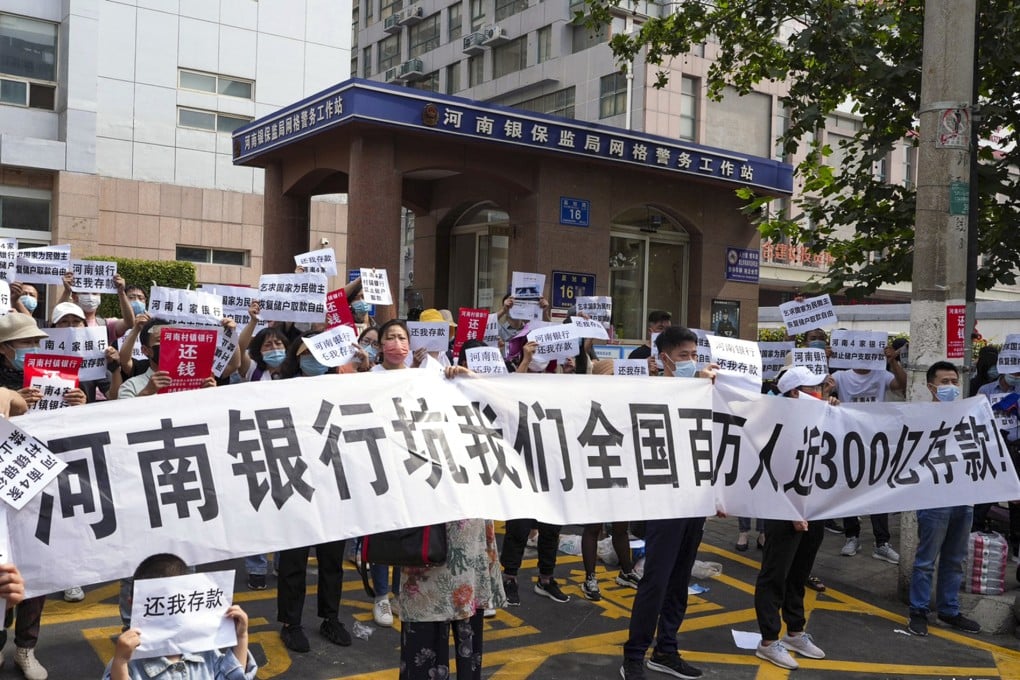Analysis | How China’s Henan bank scandal threatens a ‘crisis of confidence’ in nation’s financial system
- Central bank vows to strengthen efforts to crack down on illegal financial activities during a period that could see ‘flare-ups of financial risks’
- Small banks elsewhere in China, such as the rust-belt region of Liaoning, are also said to be susceptible to economic upheaval ‘if risks cannot be contained’

The banking scandal in China’s central Henan province could be merely the tip of the iceberg in terms of systemic risks, and its impact threatens to snowball if regulators fail to bring it under control while the nation is struggling to boost its economy, according to analysts.
Meanwhile, a central bank official vowed on Wednesday to beef up efforts in cracking down on illegal financial activities while also protecting consumer interests.
The protests subsequently escalated to a violent clash on Sunday. Protesters were surrounded by local police and were recorded being beaten by unidentified men in white shirts.
China’s small banks are often closely connected to local governments through companies they control, and these banks have exposure to the increasingly volatile real estate sector, making them more vulnerable to economic downturns than China’s largest banks.
